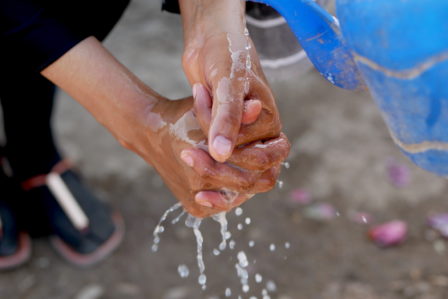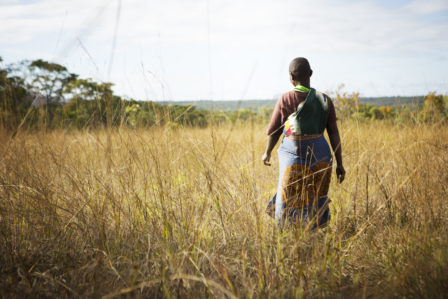The sanitation and hygiene sector faces complex and rapidly evolving challenges in its drive to achieve universal access to sustainable sanitation and hygiene, especially in reaching the poorest and most vulnerable.
To achieve its goal, programmes need to better fit and adapt to the dynamic needs of specific contexts and embed learning mechanisms to quickly generate and share evidence of what is working, and what is not. When those answers are found and acted upon, they can have exceptionally widespread impact.
Our experienced researchers and facilitators use innovative participatory approaches to engage with practitioners, policymakers and communities. We provide the methodological skills and respected ‘neutral’ positionality required to convene spaces for reflection, collect and cross analyse experiences and evidence shared, analyse and synthesise findings and draw out commonalities, differences and lessons learnt to galvanise progress and overall reduction in open defecation.
We are hosted at the Institute of Development Studies, world leaders in participatory research methods and ranked number one for development studies for seven years running (in collaboration with the University of Sussex).
Given the challenges facing the sector, the unique neutral position we hold and reflection spaces we create are more vital than ever to ensure good quality practice, and progress. We are sensitive, agile and able to adapt quickly to emerging priorities and identify gaps.
We have built longstanding relationships and trust with diverse partners across the sector, who routinely welcome our ability to document, reflect on, digest and disseminate information from different organisations and countries. We work collaboratively in equitable partnerships, supporting in-country leadership and helping to ensure research and learning activities are relevant for national WASH stakeholders and communities.
We feel strongly that timely, relevant, and actionable learning should be embedded into every aspect of implementation. This will enable clear feedback loops for ongoing reflection, assessment of strengths and weaknesses, identification of solutions to challenges – and enable interventions to be adapted accordingly, based on this evidence.
To contribute to the drive to 2030 we are looking to build on and leverage the skills, learning and extensive networks we have built up at national and international level, working as a learning partner with development agencies, governments and implementing programmes.
What we can offer as a learning partner
- Bringing people together to learn and share from peers, convening global partners, national and sub-national governments and practitioners from across the sector on the most pressing issues.
- Using participatory methods to understand and amplify community and practitioner perspectives and realities, and generate actionable findings, enabling different voices, knowledges and perspectives to be heard.
- Creating and trialling new approaches to research and learning so that learning is timely, relevant and actionable, enabling relevant stakeholders to adapt.
- Starting new conversations, drawing attention to and addressing blind spots and knowledge gaps to make sure that key issues aren’t overlooked.
- Training stakeholders, through workshops, co-designed activities and tailored support, building capacity for research design, rapid action learning and participatory research methods.
- Developing evidence based practical guidance for policymakers and practitioners to strengthen their approaches, grounded in field level realities.
- Helping to design research and learning agendas and activities, supporting partners to identify learning and research priorities, and undertake relevant activities.
- Supporting programme and research staff to develop their research, writing and communication skills to encourage documentation and dissemination of learning.
- Providing an established platform for the sector to share learning, knowledge and ideas through our website, social media channels and newsletter.
Examples of recent priorities and highlights
With our research and learning activities, we have been driving conversations on the most urgent topics facing policymakers, development agencies and practitioners in the sector, including on:
- Area-wide sanitation programming
- Climate change, resilience and sanitation services
- Challenging contexts
- Gender, equity and social inclusion (GESI)
Blindspots and emerging priorities
We are agile and able to pivot to address new challenges as they emerge. We have supported work on incontinence, disability, handwashing, the peri-menopause, helping to raise the profile of and provide practical support on these topics within the sector.
Find out more
If you are interested in our work and would like to discuss ways in which we could work together, please do email Naomi Vernon on [email protected]
At the moment, we are in a process of transitioning from core funding to a portfolio of learning partner projects. This means we are currently not able to take on unfunded work. However, as well as looking for opportunities where we can be a learning partner to organisations and for existing programmes, we are also open to collaborating on funding bids with partners, and we remain open to funders who are interested in what we have the potential to offer through broader core funding.







